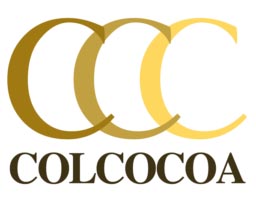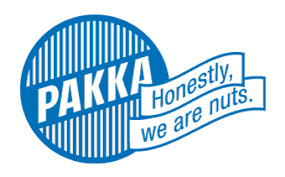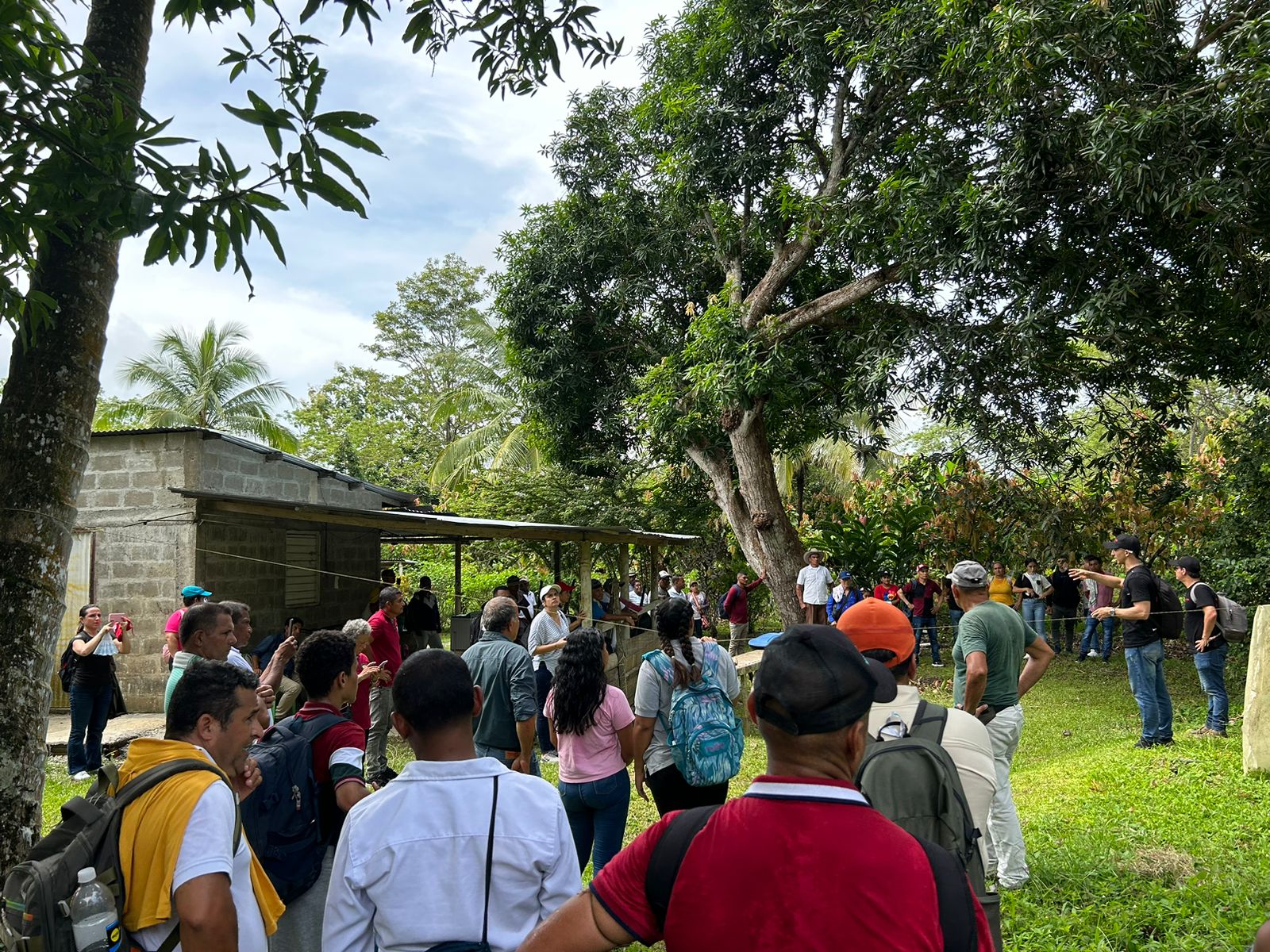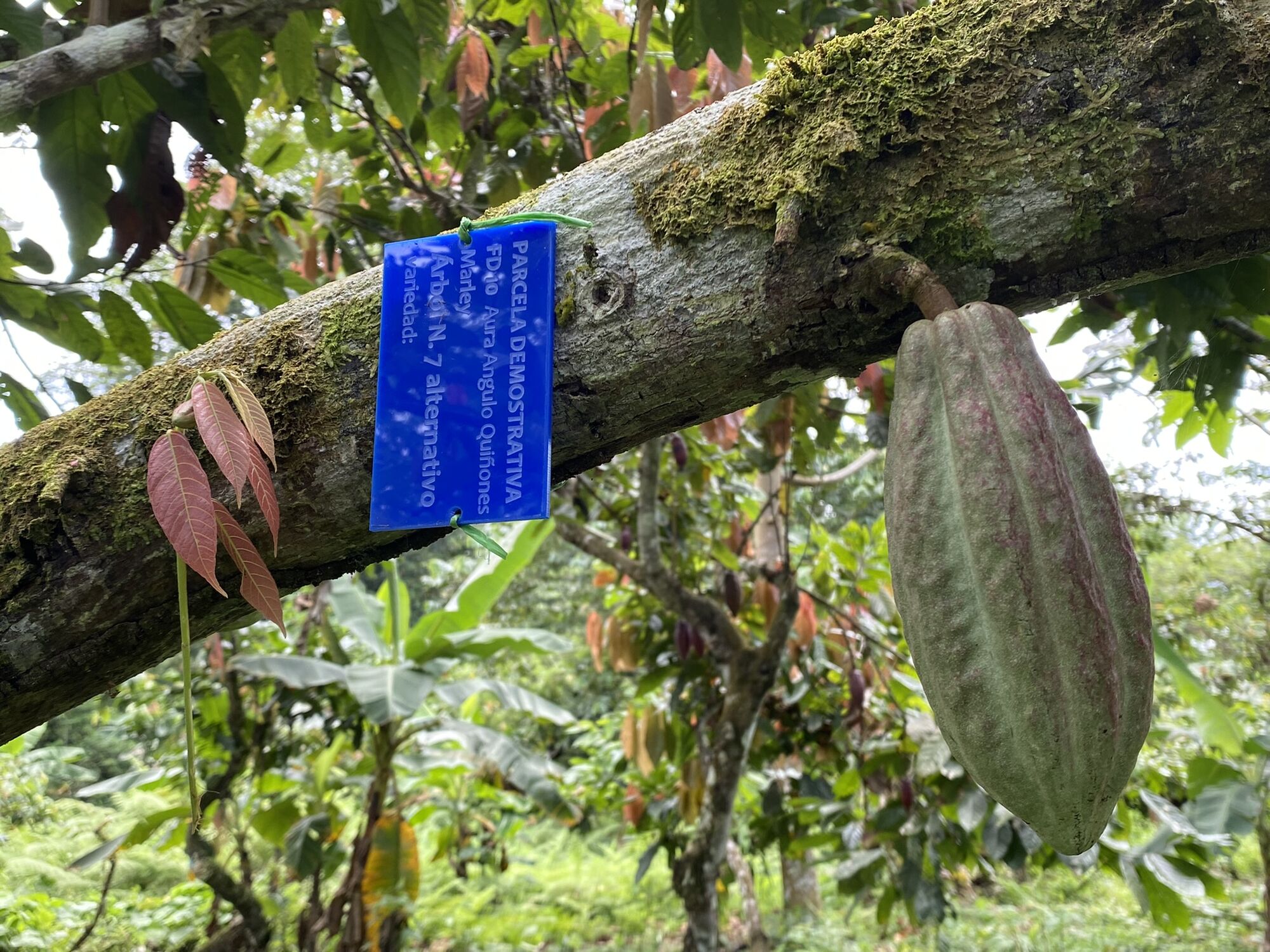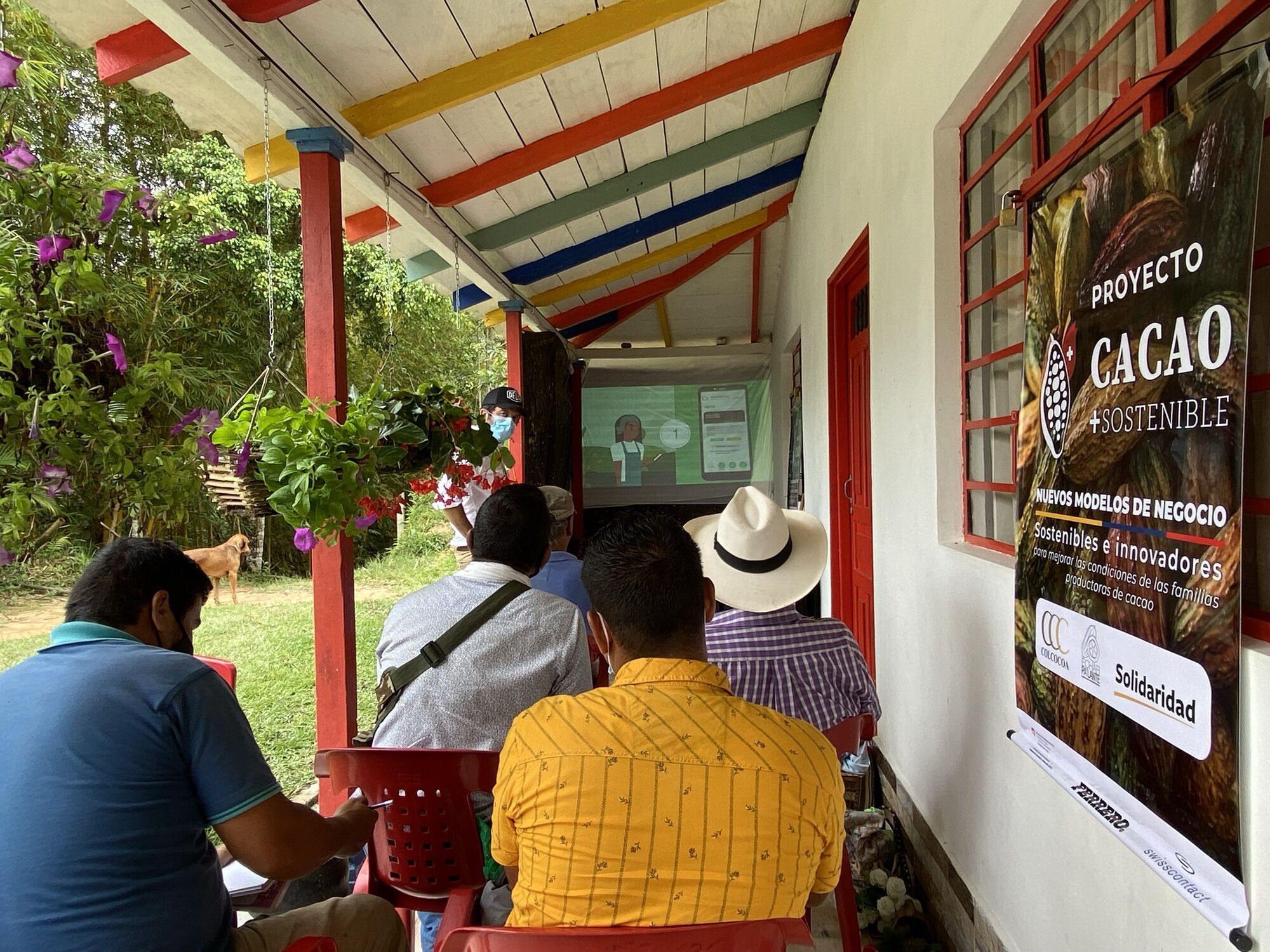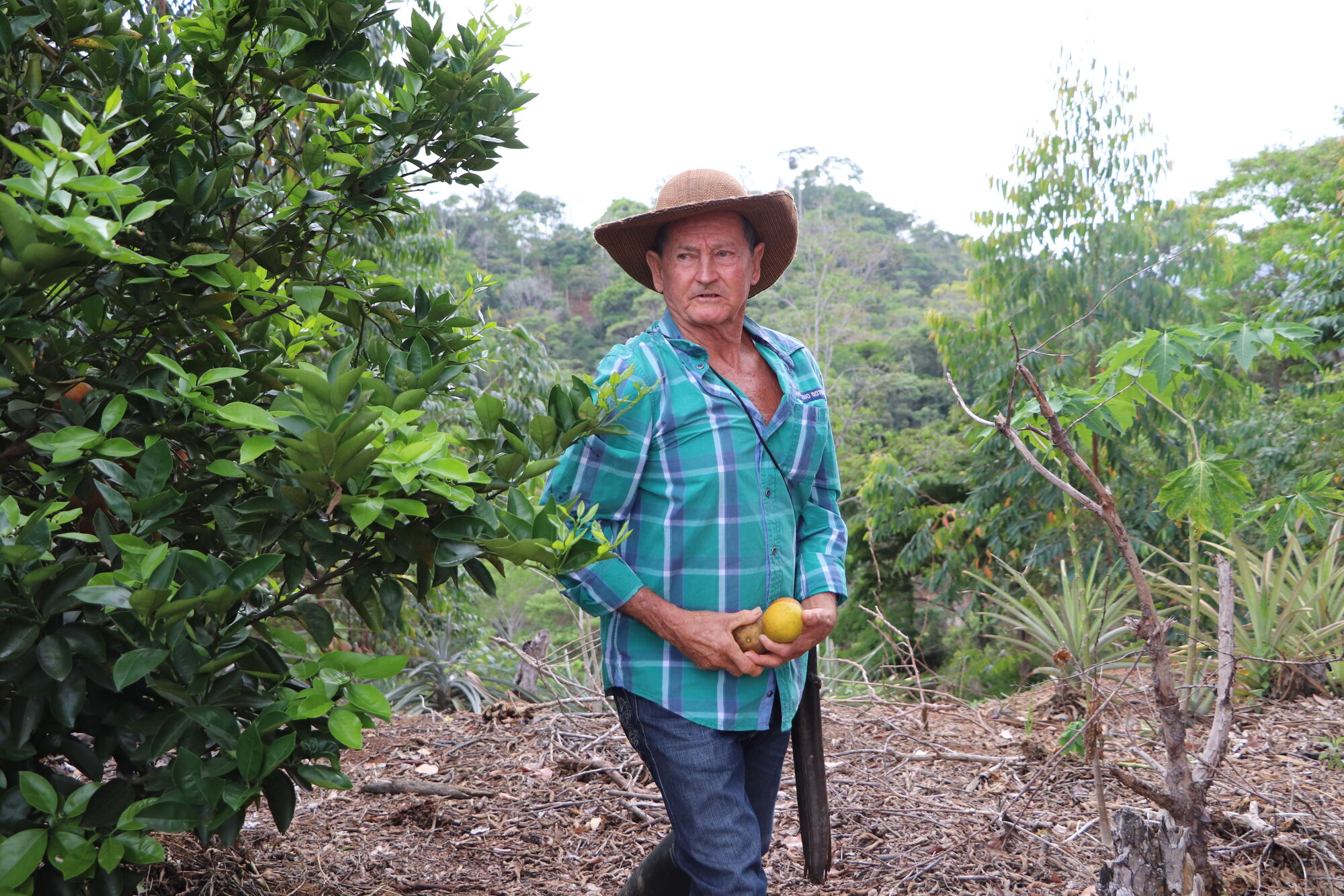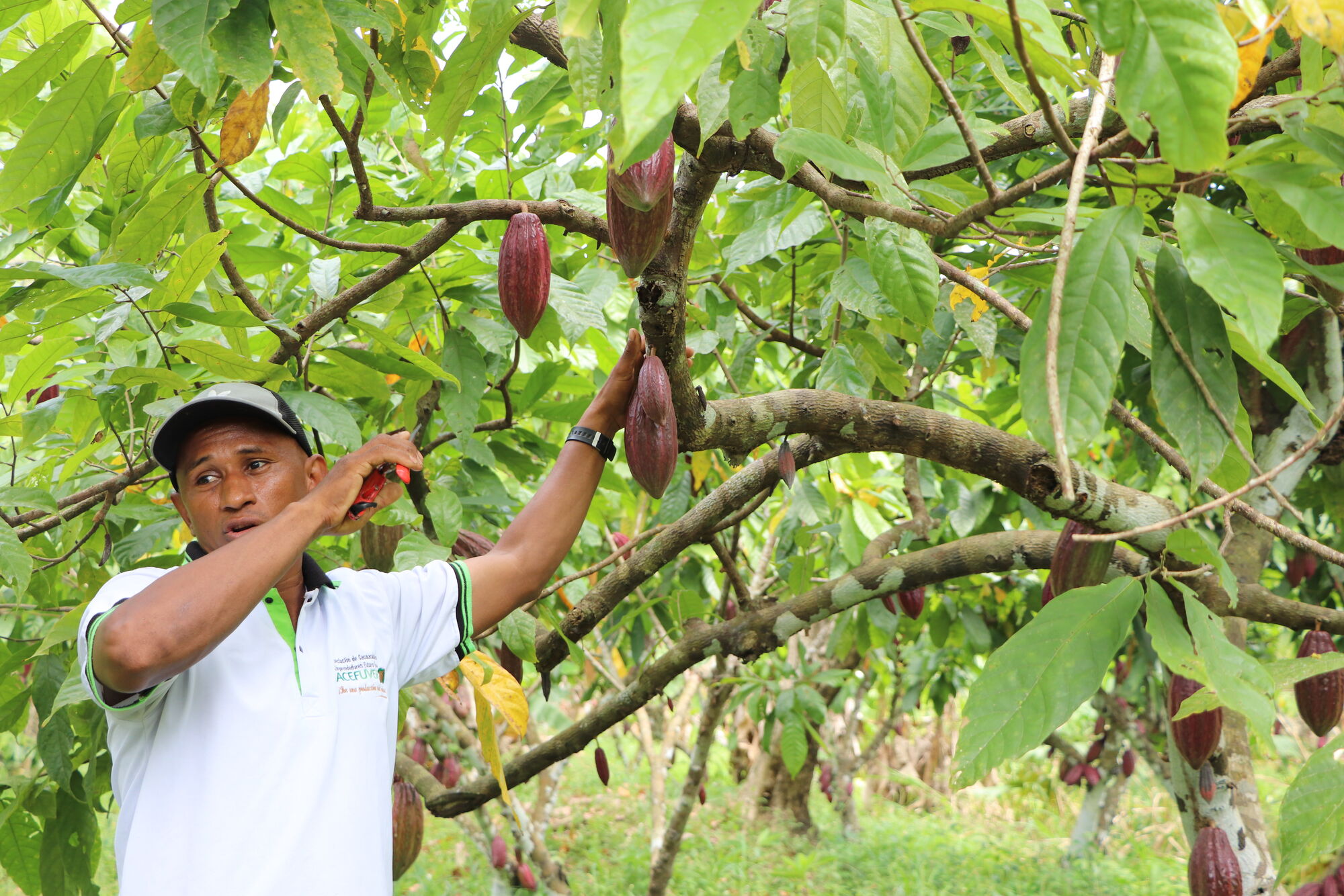Sustainable Sourcing Landscapes Antioquia
What is the main objective of the project?
The project will improve rural families’ livelihood and well-being in Antioquia through the creation of sustainable sourcing landscapes with deforestation-free and climate-friendly supply chains for present and future generations.
«Sustainable development in conflict-affected communities in Colombia depends on concerted actions between local stakeholders and international partners. We need to jointly address challenges such as poverty, scarcity of water and deforestation.»
How the project contributes to sustainable cocoa production
The project will improve sustainability in cocoa-sourcing landscapes by increasing resilience to climate change of cocoa-producing households, storing or reducing CO2, and increasing their income, exceeding the rural poverty line through three mechanisms.
Firstly, with a price premium by adopting climate-smart agriculture and processing practices to improve productivity and quality while fulfilling sustainability standards. Secondly, agroforestry systems will result in climate change adaptation and biodiversity protection while monetizing CO2 storage and thirdly through income diversification with other crops and off-farm activities with a particular focus on opportunities for women and youth.
Steps taken during the project
Swisscontact coordinates the landscape strategies at a regional level. This includes facilitating multi-stakeholder platforms, supporting the development of common agendas, and developing a landscape monitoring system.
The two main private sector partners, Colcocoa and Pakka, lead interventions to scaling cocoa smallholder integration by enhancing climate-smart and regenerative agriculture practices in the two landscapes where they are already established as reliable and fair cocoa sourcing partners.
Agroforestry interventions are part of two municipal landscape development plans (in Maceo and Apartadó) with the potential to simultaneously scale to other cocoa-producing municipalities.
For the project to have a sustainable impact, it is important to involve local organisations and authorities. How are they included in the project?
The project places great emphasis on developing the capacities of local stakeholders to strengthen local governance regarding the landscape approach and sustainable land management and to develop participatory landscape monitoring systems to track progress.
The integrated landscape governance platform was planned and discussed with local stakeholders as part of the sub-regional cocoa cluster initiatives in Urabá and Magdalena Media, led by the regional chambers of commerce.
Under the leadership of the University of Antioquia, we are strengthening the innovative University-Firm-State (CUEE) committees to mobilise stakeholders for sustainable regional landscape development.
The expected outcomes of the project
Implementation of common sustainable landscape agendas, with increased involvement of women in decision-making processes. Moreover, active participation of local stakeholders through aligned interventions as well as participatory monitoring to track progress.
Furthermore, the project is working towards the adoption of income diversification and productivity and quality-enhancing measures by farming households, with increased opportunities for women and youth.
In addition to this, the project implements climate-smart and regenerative agriculture practices and a transition to agroforestry systems, creating more value for local smallholders and an increased supply of deforestation-free cocoa while promoting climate mitigation and adaptation and protection of biodiversity.
How a lasting impact beyond the project's duration is ensured
With effective knowledge management and monitoring, the pilot interventions that involve local stakeholders in developing sustainable sourcing landscapes will yield valuable insights and tools.
These can be then applied in other municipalities within the department and across Colombia. The main private sector partners, Pakka and Colcocoa are committed and reliable.
They are dedicated to furthering sustainable sourcing landscapes in various cocoa-producing regions of Colombia. Additionally, more companies are joining this integrated landscape governance approach, ensuring long-lasting impacts beyond the project’s duration.
Organisations involved

